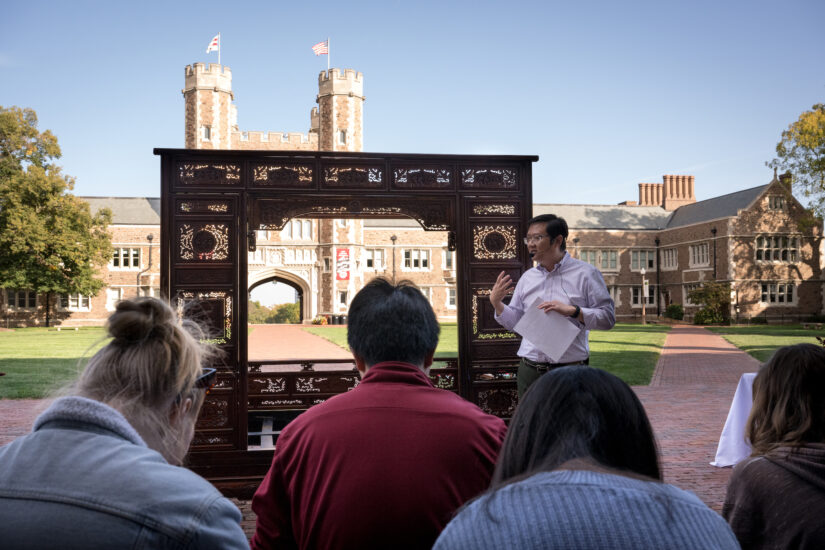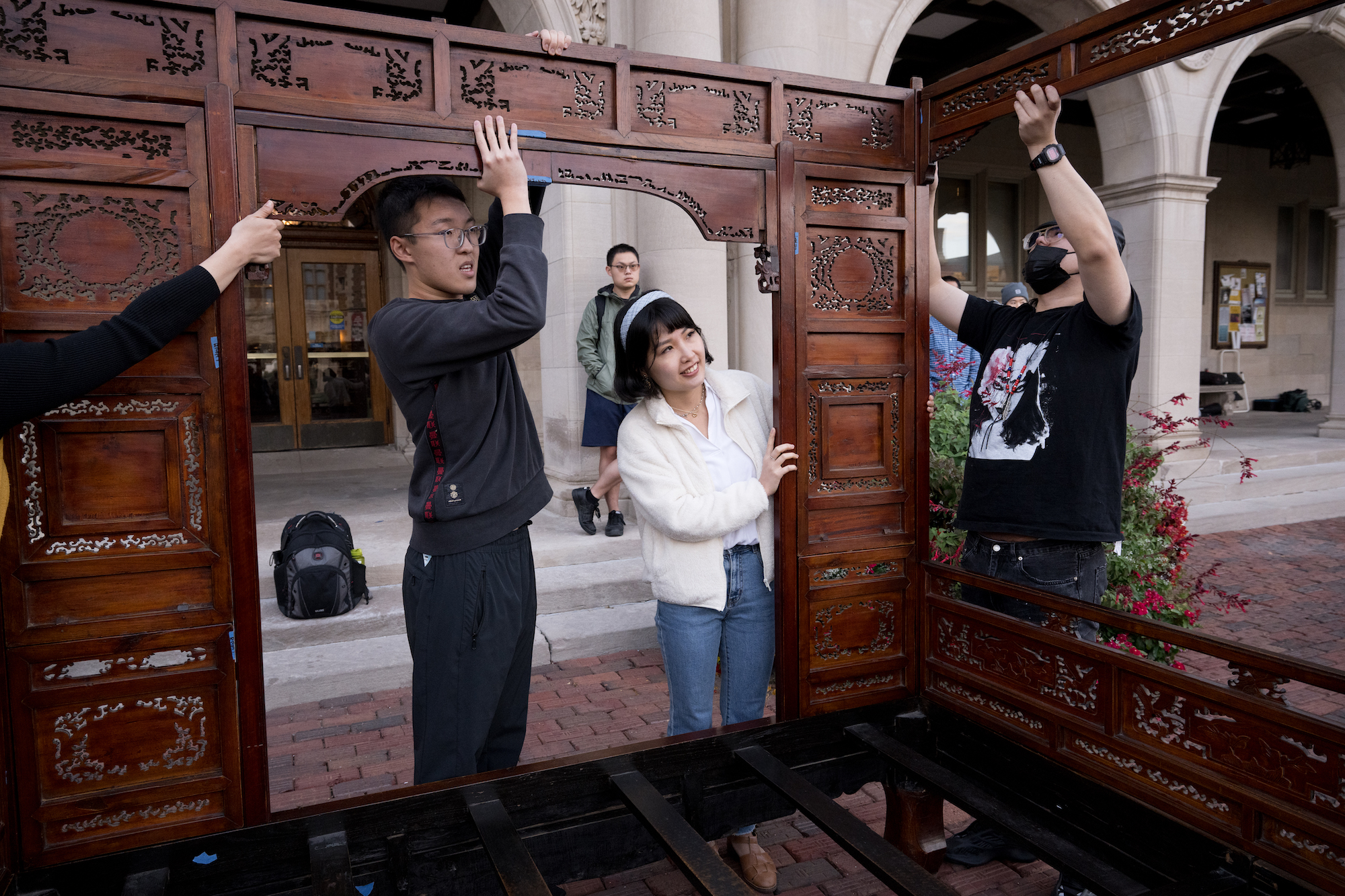In fall of 2022, Zhao Ma presented his students with a rare, hands-on experience to study cultural history up close, from furniture assembly to 3D modeling, through his acquisition of an elaborately crafted 19th-century Chinese bed. Ma, associate professor of modern Chinese history and culture in Arts & Sciences, and his students assembled the Qing-era bed in Brookings Quadrangle on Washington University’s campus.
Despite being destined for one of the most private spaces of the home, a marriage bed constructed during the Qing era (1644-1911) served an important public function as a display of wealth and status. Beds told an important story about a family’s religious, social, and economic role in society.
In a museum, you only can see what the curator wants you to see, right in front of the glass panel that separates you from the display. But here, students see the bed from different angles, curating their own perspective. Getting close to an object like that reveals the secrets of the craftsmanship and design process.
Zhao Ma, associate professor of modern Chinese history and culture in Arts & Sciences

Xinyue Gao, a doctoral student in Chinese language and literature and a member of Ma’s research team, says that observing and touching the bed let students move past the textual evidence, such as historical records, that they normally use in cultural history classrooms.
In addition to giving current students an opportunity for hands-on construction and up-close analysis, Ma received a grant from the Humanities Digital Workshop to work with the Caleres Fabrication Studio in the Sam Fox School of Design & Visual Arts to create a 3D model of the bed for future classroom use. Students can scan each component, creating a model that others will be able to manipulate in future iterations of Ma’s Chinese civilization course.
Eventually, Ma would like to donate the bed to a museum for permanent display. For now, the bed will remain a highly valued teaching tool that captivates and inspires students in new and exciting ways.
“The Sound of Mao’s Last Revolution: Information Technology and Political Communication in Socialist China, 1966-1978.”
Recipients of a 2022 Global Incubator Seed Grant awarded by the McDonnell International Academy of Scholars and Washington University Office of the Provost, Zhao Ma and Joan Wang are exploring the Cultural Revolution as a sonic experience and experiment. They are partnering with Fudan University and the University of Macau.
The project highlights the technology of revolution and the sensory and emotional aspects of political and cultural campaigns. People experienced the Cultural Revolution with their ears. They kept up with political messages and the evolving political campaign by means of recorded songs and operas and political radio broadcasting. Amplified by technologies, the sounds of revolution bombarded the population via loudspeakers placed in public arenas and radio sets in private homes. As a sonic experiment, the government remade China’s soundscape by expanding communication infrastructure and utilizing innovative methods of recording and broadcasting.
We combine various digital tools (e.g. Python and HTML parsing, photogrammetry, digital storytelling and digital cartography) with more “conventional” humanistic research methods such as textual analysis and archival research to facilitate a cultural history dedicated to topics such as craftsmanship, intimacy and interior design, dowery and nuptials, and trade and cultural exchanges between China and America.
Zhao Ma, associate professor of modern Chinese history and culture in Arts & Sciences
Studiolab: Living and Learning Communities Grant
The project successfully received the “Studiolab: Living and Learning Communities Grant” under “Redefining Doctoral Education in the Humanities Project,” supported by the Mellon Foundation and Washington University in St. Louis.
The new grant will allow for:
- An object-based learning and experiential education that emphasizes direct and multidimensional engagement with a material artifact
- An introduction to digital research methods applied to material culture and social history, including database mining and software instruction of NVivo, ArcGIS, Python and HTML parsing, StoryMap, and digital cartography
- An improvement of students’ information and data literacy skills
- Community-based comparative research at historic homes in St. Louis, including Hanley House Museum, Campbell House Museum, Daniel Boone House, the Chatillon-DeMenil Mansion, and Scott Joplin House
- The dissemination of research findings in genres including documentary films, public-facing sessions, virtual galleries, 3D models, online games, and exhibition materials
- A professional development practicum in public history and digital humanities for the Ph.D. students and a Postdoctoral fellow, who will serve as instructors in this program
